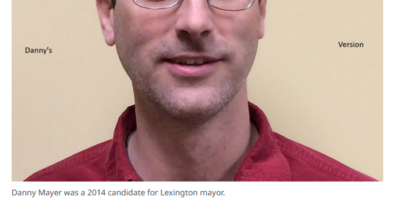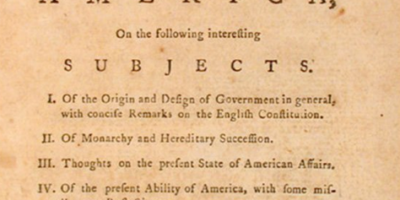By Marcus Flores
When Trayvon Martin died, it seemed that decency as well as level-headed thinking died too. Both perished in the wake of a media frenzy that clung to a narrative of race that was, in my opinion, the least salient element of a wholly ambiguous encounter that no one personally witnessed. I attempted to write a column to clarify this, though it was a failure due to the time I devoted to disentangling the legal minutiae as if I were an attorney. I remind you that I am not.
Nonetheless, Trayvon Martin’s death remains a tragedy of the highest order, and not in the least because the teen is dead. As a group, Americans wholeheartedly surrendered their faculties to the corporate manifestation of the left-right paradigm: the media.
Conservatives made haste in smearing the deceased. They called into question Martin’s academic standing, drug usage, and gun ownership. The attempt was as obvious as it was reprehensible: get everyone on board with the thug stereotype and neglect the phenomenon that, in high school, teens try on different hats and can stray into the wrong crowd. Not to mention that teens may represent themselves differently when with peers than when at home or in church. Yes, they may even get into fights, though a particular pattern of behavior does not predict one’s behavior in all events.
Consider: the kindest counselor with a spotless record will issue a fearsome beating to the pervert who cops a feel off his wife. Or a man who has been convicted of multiple counts of domestic violence can come to the aid of three women locked in some creep’s dungeon in Cleveland. But because Trayvon Martin did not live to tell his tale, his record of bad behavior invites conjecture from sources who never knew him. His very identity was probably distorted—and hence irretrievably lost—by those looking to validate their preconceived opinions of the case.
Much the same can be said of George Zimmerman and the liberal media. His own record was summarily sniffed out by NBC News, who also took the liberty to ensure that he will forever be known as a racist. The edited 911 tape that appears to show Zimmerman volunteering Martin’s race is the most wretched form of media bias I hope to ever see. Appalling as it is, it does not mean that Zimmerman was not the aggressor. The neighborhood watch volunteer may have had it with neighborhood punks and snapped on Martin.
But no amount of evidence could stop the boulders that NBC and Drudge set in motion. Both squashed any chance for the objective viewer to decide there simply wasn’t enough evidence to suggest Zimmerman was motivated by racial animus. However, I concede that one can’t prove Zimmerman was not a racist. But asking the defendant to prove that negative highlights some of the issues with hate crime laws—issues which have been absent throughout the entire saga.
Libertarians have long equated “hate crime” to “thought crime” since the punishment worsens if a defendant’s particular mindset can be proven. For Zimmerman, the FBI launched an investigation into some 30 of his closest associates to establish whether he carried a certain prejudice. He fared much better than Paula Deen would have.
In fact, it’s almost remarkable that no memory exists of Zimmerman having ever said anything even remotely controversial on the subject of race to one of his friends. Having played sports in high school, I know exactly the kind of filth that echoes from the walls of the locker room. That doesn’t mean all or any of the athletes were homophobes or racists or bigots. It just means some had dirty mouths and small vocabularies.
I suppose one could still argue that Zimmerman, while not a racist, “profiled” Martin. To make that case one would have to carefully consider the qualities commonly associated with a “suspicious person,” which are probably more a matter of intuition. In any case, we can’t really know for sure unless Zimmerman sheds his silence. Until then, one can only speculate on his mindset at the time of the encounter.
Yet, I think there has been enough speculation on this case. The encounter was nothing more than a story of two men who misinterpreted each other’s actions—fatally. Instead it was seen as a blank slate upon which anyone could sketch an opinion on race and spin it for ratings. For that reason, I can hardly conceive of a greater tragedy.
This piece is one of three appearing in our August 2013 print edition under the headline, Still thinking about Trayvon Marin. The others included “Reflections on the Lexington town hall meeting” and “On jury nullification.”




Leave a Reply